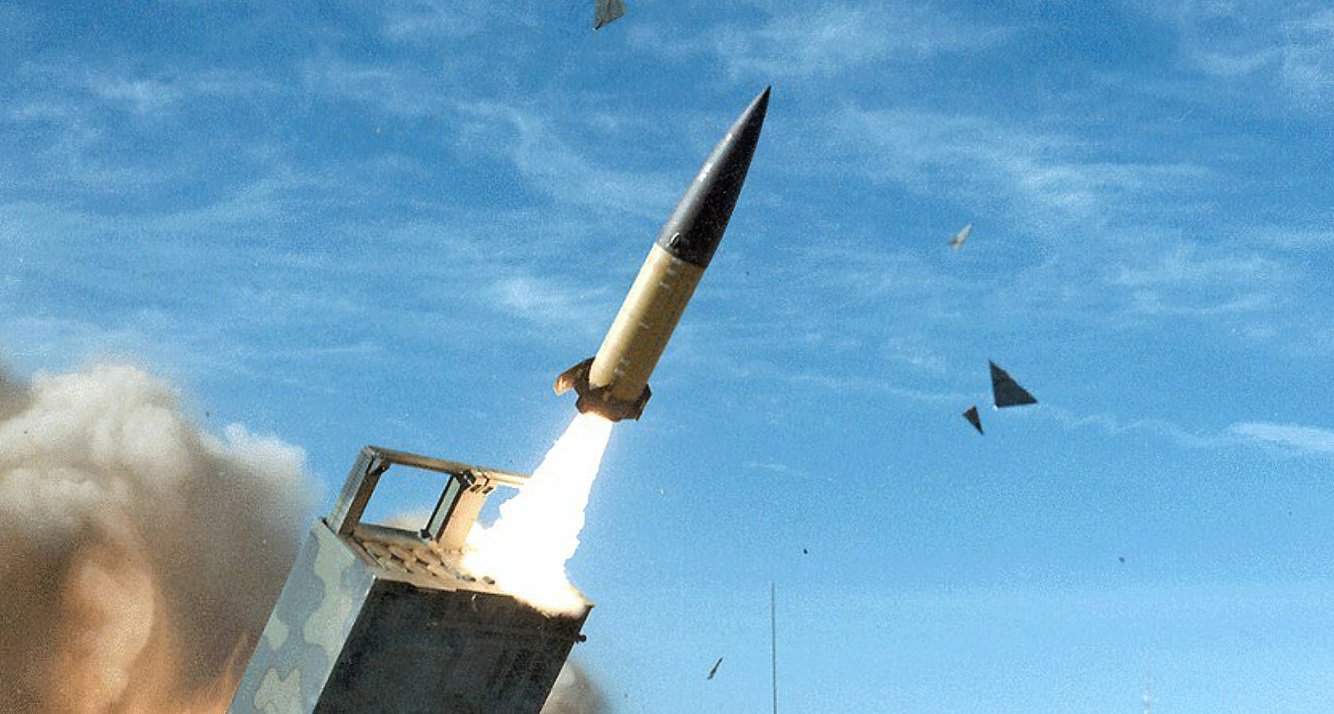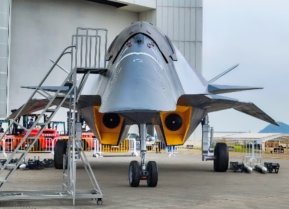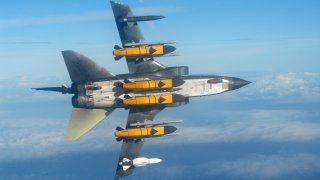Storm Shadow Missiles are Hitting Russia: World War III 'Trigger' for Putin?
Ukraine has reportedly deployed UK-supplied Storm Shadow missiles against Russian targets, a significant escalation given Russia’s updated nuclear doctrine.
What You Need to Know: Ukraine has reportedly deployed UK-supplied Storm Shadow missiles against Russian targets, a significant escalation given Russia’s updated nuclear doctrine.

-This doctrine now allows for a nuclear response to conventional strikes on Russian soil using weapons from nuclear powers like the UK or the US. While Russia may not immediately resort to a nuclear response, the non-zero risk is deeply concerning.
-Ukraine’s actions reflect its existential struggle, but Western nations risk exacerbating the conflict and should consider prioritizing diplomatic efforts to prevent a prolonged war or nuclear escalation.
Storm Shadow Is Hitting Russia Hard
We reported last week that Ukraine had fired the U.S.-supplied ATACMS missile against targets on Russian soil. Now, Ukraine has fired UK-supplied Storm Shadow missiles against targets on Russian soil. The use of foreign-supplied missiles against Russian targets is especially significant because Russia has updated its nuclear doctrine with an explicit warning, lowering the nuclear response threshold, allowing for a nuclear response to conventional strikes, within Russian territory, from weapons belonging to a nuclear power, i.e., the U.S. and UK.
Translation: Ukraine’s use of the ATACMS, or Storm Shadow, against targets on Russian soil, could trigger a nuclear weapons attack from Putin.
Deploying the Storm Shadow
The Storm Shadow is a low-observable, long-range air-launched cruise missile with a single 450-kilogram warhead. The missile has a 550-kilometer range and can be deployed from a variety of European aircraft, including the Mirage 2000, Rafale, Su-24, Tornado, Typhoon, and Gripen. The Storm Shadow is renowned for its ability to penetrate hardened bunkers and ammunition stores.
Reports from the battlefield are often hazy, and in the current circumstances, officials are reluctant to speak directly to the questions at hand. For example, the British government “has refused to comment on the reports [of the Storm Shadow deployment] for operational reasons,” the BBC reported, “but officials confirmed Defence Secretary John Healey spoke to his Ukrainian counterpart on Tuesday night.”
Healey’s indirectness is understandable, given Russia’s just-lowered nuclear threshold, and the desire to “ensure the move is not seen as being led by the UK.”
Ukraine, too, declined to confirm whether the Storm Shadow was deployed. Rustem Umerov, Ukraine’s Defence Minister, acknowledged only that Ukraine was “using all the means to defend our country.” The Americans played the same game, with Matthew Miller, the State Department’s spokesman, declining comment on the issue.
Would Russia Respond with a Nuclear Attack?
Russia’s newly revised nuclear doctrine is clear that an ATACMS or Storm Shadow attack, against targets within Russia, would qualify as an incidents worthy of a nuclear response. Of course, the revision in and of itself serves as a deterrent mechanism, a warning that Putin hopes the West will heed. Whether Putin intends to follow through on the threat implied within the nuclear doctrine is another matter; would Putin respond with a nuclear attack in the event of a conventional weapons strike within Ruonsoil?
Probably not.
But, the chances are higher than zero. And any non-zero chance of a nuclear strike should be honored with severity.
The Ukrainian’s willingness to tempt fate, to continue striking out against Russian-based targets, is logical, for Ukraine is under attack and facing an existential threat. But for the Americans, or the British, to take that non-zero chance of inciting a nuclear response, in allowing their weapons to be used against Russian-based targets, makes significantly less sense.
The likelihood of Ukraine defeating the Russians is quite low. The West should recognize the realities of the conflict, resist osculatory behavior, and instigate the peace-seeking process before the Ukrainians suffer either the horrors of nuclear war or of prolonged attrition war.
About the Author: Harrison Kass
Harrison Kass is a defense and national security writer with over 1,000 total pieces on issues involving global affairs. An attorney, pilot, guitarist, and minor pro hockey player, Harrison joined the US Air Force as a Pilot Trainee but was medically discharged. Harrison holds a BA from Lake Forest College, a JD from the University of Oregon, and an MA from New York University. Harrison listens to Dokken.
Image Credit: Creative Commons and/or Shutterstock.


